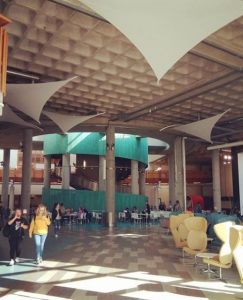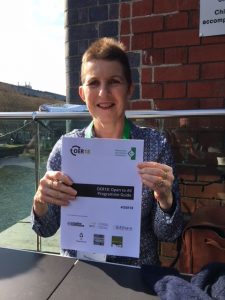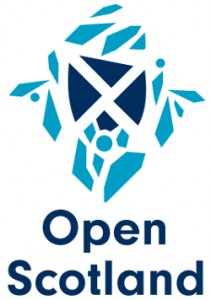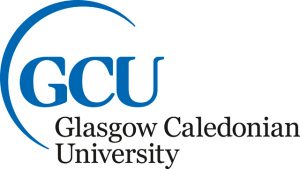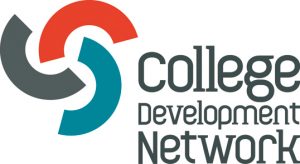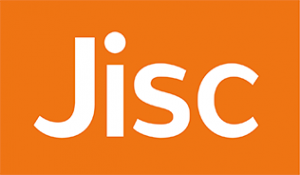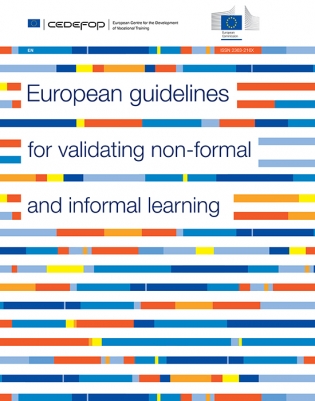During the ALT Scotland Policy Board meeting, which took place at SQA on the 16th of November 2015, a number of strategic updates were presented by a range of sector agencies including SFC, Jisc Scotland, QAA Scotland, SQA, College Development Network (CDN) and Open Scotland. The following summary of these updates has been approved for circulation to the sector.
Scottish Funding Council
– David Beards, Senior Policy Officer.
SFC is working towards the integration of the QA and outcome agreement processes, and looking to strengthen self-evaluation and integrate different voices in QA processes. SFC believes that QA is in good shape in Scotland and would like to see greater continuity of the existing QA arrangements, however they are waiting to see what happens at UK level as there may be some impact from the TEF and the external examiners review process. QAA Scotland’s recent work on assessment and feedback has been particularly beneficial.
SFC will continue supporting and funding Jisc. Funding has been cut by 5% but this has not affected core services. There may be further cuts as SFC are facing a tough public spending review settlement. As funding is reduced it’s possible that infrastructure will win out over innovation and projects. With Jisc’s new structure it’s important that institutions let Jisc know what their priorities are. The majority of Jisc’s spending has historically been on supporting the digital infrastructure, with most trafficfrom researchers & research groups. However as people are putting more things in the cloud the network infrastructure is supporting equally learning, research and general institutional operations.
In the context of efficiency gains and spending reviews SFC will seek greater cooperation between national agencies. (In terms of organizational structure, David is now on the research universities side of SFC and has no involvement with teaching, learning and Jisc.)
Scottish Qualifications Authority
– Martyn Ware, Head of Assessment.
Development & Delivery Digital evidence is SQA’s guiding theme. SQA is considering the implications of the continuing move amongst its centres from paper to digital evidence over time and for digital to become the default.
SQA have already started to investigate the practicalities of dealing with digital evidence. Can SQA verifiers look at that evidence remotely regardless of where it exists, e.g. Moodle, Mahara? SQA has done a small pilot sample and it looks like this is feasible. There are no overriding barriers; that would prevent verifiers from verifying digital evidence. Along with the benefits for teaching, learning and assessment, reductions in funding play into this agenda, costs savings, reduction in travel costs, increased efficiency. We are starting work with some colleges to develop SQA endorsed templates for use in Moodle and Mahara to encourage staff to use these serves.
Capturing exam responses in digital format is still difficult. As a system we still require students to go into an exam room once a year for their high stakes school leaving exams. We’re starting to look at this with the Paper Plus initiative in partnership with BTL. This approach would allow learners to capture exam responses using digital devices rather than paper. Content is uploaded from the device at 30-second intervals, then at the end of the exam a final copy is uploaded and wiped from the device. We hope it will reassure learners and wider stakeholders that we are starting to explore the application of digital technologies to exams. Edinburgh University and others have already done some work in this area. It’s a difficult area but one we as a system need to explore; for how much longer is it realistic and valid to expect students to continue filing into exam rooms once a year and writing out their responses with a pen?
We need a pragmatic approach but we also have to be open to new developments. It’s not a sudden switch it’s a journey. Digital submission can also enable us to assess things that we cannot assess on paper, e.g. submitting working code samples.
QAA Scotland
– Heather Gibson, Enhancement Team.
Like Jisc, QAA Scotland have had a 5% funding cut so we have had to pull back on certain initiatives. SFC have suggested that efficiency must be prioritized over innovation, in our experience they come together. QAA Scotland have lead innovative projects with very little funding and staffing support.
QAA Scotland will be responding to Universities Scotland with reflections on the TEF proposals. Although we recognise the benefits of monitoring, we also feel that it’s important to understand why data is being collected and how it will be used. No one gets healthier just by taking their temperature. It’s what do you do with the information to improve the learning and teaching process that is important.
In terms of policy it’s a movie feast, everything is very dynamic. It’s unfortunate that the Scottish Government aren’t here, so we could prod them into resurrecting the learner journey work they did. This would give us all a good policy umbrella to work under.
The Focus On Assessment and Feedback project looked at management of e-assessment. There was lots of interest in this project but it was only funded for one year. Funding has now run out but we are still willing to run events and to expand this work into other sectors.
QAA Scotland’s main area of work is the student transitions enhancement theme, which is now in its second year. Institutions have a sum of money to focus on student transitions, and they can interpret the theme as they see fit. We are pulling together a visual map of how people deal with transitions and hope to lead people to existing practice that can be helpful to them. Snook have been appointed to undertake this work.
QAA Scotland haven’t yet decided what work to commission in the coming year, there is only a small amount of funding available. We’re interested in using the digital world creatively and not just replicating existing practice. We’re looking at other campuses around the work and how people spread cultures online.
Jisc Scotland
– Jason Miles-Campbell, Head of Jisc Scotland and Jisc Northern Ireland.
Jisc Scotland have to balance Scottish priorities with the national agenda as Jisc are a large UK organisation. There are great efficiencies to be gained from exploiting the UK wide nature of Jisc. We are getting used to being two thirds of the size we used to be. Developments are progressing but some things are not moved on as fast as we’d hoped. It’s good we have a new CEO who is graduate of St Andrews and who understands the Scottish context.
Jisc has a strategic contact at each institution who liaises with their Jisc account manager. We have moved away from being seen as an IT organisation, but account managers still tend to get shoved in the direction of institutional IT managers. We are focusing more on technology enhanced learning now.
Key themes:
- Getting efficiencies through existing technologies, e.g. Office 365.
- Learning analytics is a key engagement theme.
- Revising learning spaces and digital classroom, and looking at how we use estate.
- Transnational education and supply of resources to learners outwith the UK.
- Supporting development of the young work force, and employer engagement.
We have a better view of Scottish institutional projects; there are a lot of assessment projects in Scotland, Accessible by Design is also an important area of activity, along with building digital capability frameworks. We need to get more colleges involved though.
In terms of the open agenda, universities have been more focused on the open access research agenda, rather than open education practice due to research council mandates. The new CEO has got an interest in open badges so we may see some movement on this. Open education practice is not currently emerging through college and university engagement as a priority for Jisc.
Open Scotland, the Scottish Open Education Declaration and OEPS
– Lorna M. Campbell, EDINA Digital Education Manager and OER Liaison.
Learning Teaching and Web Directorate The University of Edinburgh have committed funding to Open Scotland in order to support the OER16 Conference which will be taking place in Scotland for the first time and to promote the Scottish Open Education Declaration.
The Declaration is now available online as a version 1.0 public document. Feedback from institutions suggested that while the Declaration proved to be very useful for raising awareness of open education at senior level within institutions, senior managers were unwilling to be steered by a document in draft format. Many institutions across the sector have already contributed to the Declaration and the 1.0 version is still open for comment.
The Declaration has been forwarded to Cabinet Secretary for Education and Lifelong Learning Angela Constance and her predecessor Mike Russell and although it has met with a positive response, we have not yet been successful at getting traction for open education at Government level.
The OEPS Project have recently suggested using the Declaration as the basis for the development of a concordat which all Scottish HEIs would be encouraged to sign up to. Pete Cannell, OEPS Project Co-director, has suggested that the Concordat might be similar to Athena Swan with perhaps three tiers of commitment. At each level there would be specific commitments that would be designed to develop a growing and sustainable engagement with open education. The Concordat would have it’s roots in the Declaration but it would be different in the sense that, whereas the declaration is an open document and should change on an ongoing basis, the Concordat would be fixed for some specified period. OEPS are proposing to look at whether there are international examples that might influence the development of the Concordat, explore how a Concordat could articulate with the Declaration and talk to people around the sector, including the Universities Scotland Learning and Teaching Committee about how such an idea could be implemented.
While the focus on open education practice is to be encouraged, there is a feeling in some quarters that open educational resources have been done and dusted and are rather old hat. This is clearly not the case. There is still a lot of work to be done in this area and there is a strong ethical case to be made that all publicly funded educational content should be openly licensed. Several of the large cultural heritage institutions south of the border are leading the way by releasing their digital collections under open license. Education institutions are rather lagging behind in this regard which is one of the reasons we want to draw the open education community together with the cultural heritage sector through the OER16: Open Culture Conference.
The University of Edinburgh is in the process of formulating institutional policy for open education resources and have developed a vision for OER at the university. The proposed OER vision has three strands:
- For the common good – teaching and learning materials exchange to enrich the University and the sector.
- Edinburgh at its best – showcasing openly the highest quality learning and teaching.
- Edinburgh’s treasures – Making available online a significant collection of unique learning materials available openly to Scotland, the UK and the world, promoting health and economic and cultural well-being.
College Development Network
– Joe Wilson, Chief Executive
College senior management teams are looking for advice on communicating at scale across multi campus colleges. They are also looking at effective use of email & other tools for time management. Another priority area is getting better data and dashboards to manage activity across bigger colleges.
CDN are working closely with the OEPS Project to cascade out their outputs across the sector.
Learning technologists in the Scottish FE are now beginning to refocus following regionalization and mergers. Getting Moodle working across multiple college sites is a priority. CDN are investing in CMALT certification through ALT and are looking to support staff development in colleges in Scotland. We’re trying to encourage colleges to look at the bigger ALT family in order to help them plug into colleagues in HE.
CDN are progressing access to Jisc collections and going through clearance so we can all have access to Glow. There are actually lots of really useful resources in Glow that will help a lot of schools and colleges to work in partnership.
CDN have hosted the Re:Source open learning object repository. This was a subset of Jorum, so we’re now caught up in the Jisc debate regarding what will replace Jorum. We’re having monthly calls with the Jisc people who are looking at what comes next. Jisc are building an app store, a content store and an online academy for FE. We’re hoping that the content or app store will provide us with a suitable solution that will replace the Re:Source platform and enable us to continue sharing open education resources. However conversations with Jisc collections suggest they are more focused on creating a shop window for selling back high quality content to the sector.
CDN sit on the learner led part of the FELTAG / ETAG work. Jisc are funding a range of activities south of the border; this is where the FE Academy work is coming from. It will be interesting to see what comes out of this. We have already achieved super efficiencies in Scotland; AOC are now facing a 25% cut and regionalization and it will be interesting to see the impact of this on the FELTAG work.
We are actively promoting developments coming out of UfI, e.g. Citizen Maths, and a blended learning MOOC for FE staff.
Next year the standards for FE lecturers are due for review and this will give us real leavers to get digital and open practice embedded in the sector.
We already have free online resource about copyright have embraced OER and Open Badges.
Following regionalization, colleges are back to focusing on what learners want. West College Scotland and City of Glasgow College have done two surveys of what learners expectations of technology usage. 90% of students have smart phones and they now expect to bring their own device. Learners also really do want online blended learning. NE College are leading the charge on BYOD. Clyde College are looking at the Alfresco EduSharing repository to share learning materials regionally. City of Glasgow have opened their new riverside campus and invested in wireless data projectors rather than digital whiteboards across whole centre, which should facilitate new delivery models in classrooms.
70% of modern apprentices spend time in colleges and there is talk of an employers’ levee to fund apprenticeships. This may change employers expectations regarding the delivery of learning and may drive online learning etc.
CDN are revitalizing all 32 of their networks, communities and mailing lists. Some are on Jiscmail but we need to look at something that will support communities in this space. Jisc could look at how it could support a social platform for learners.




